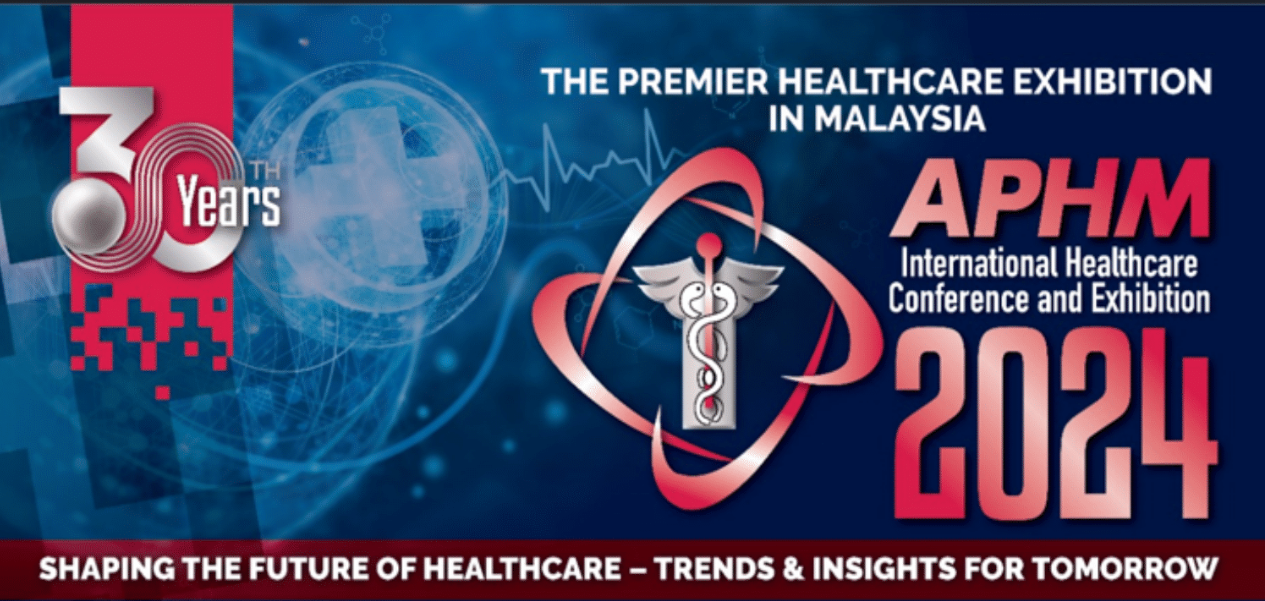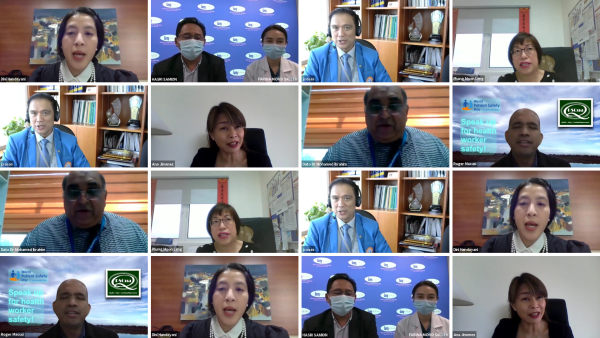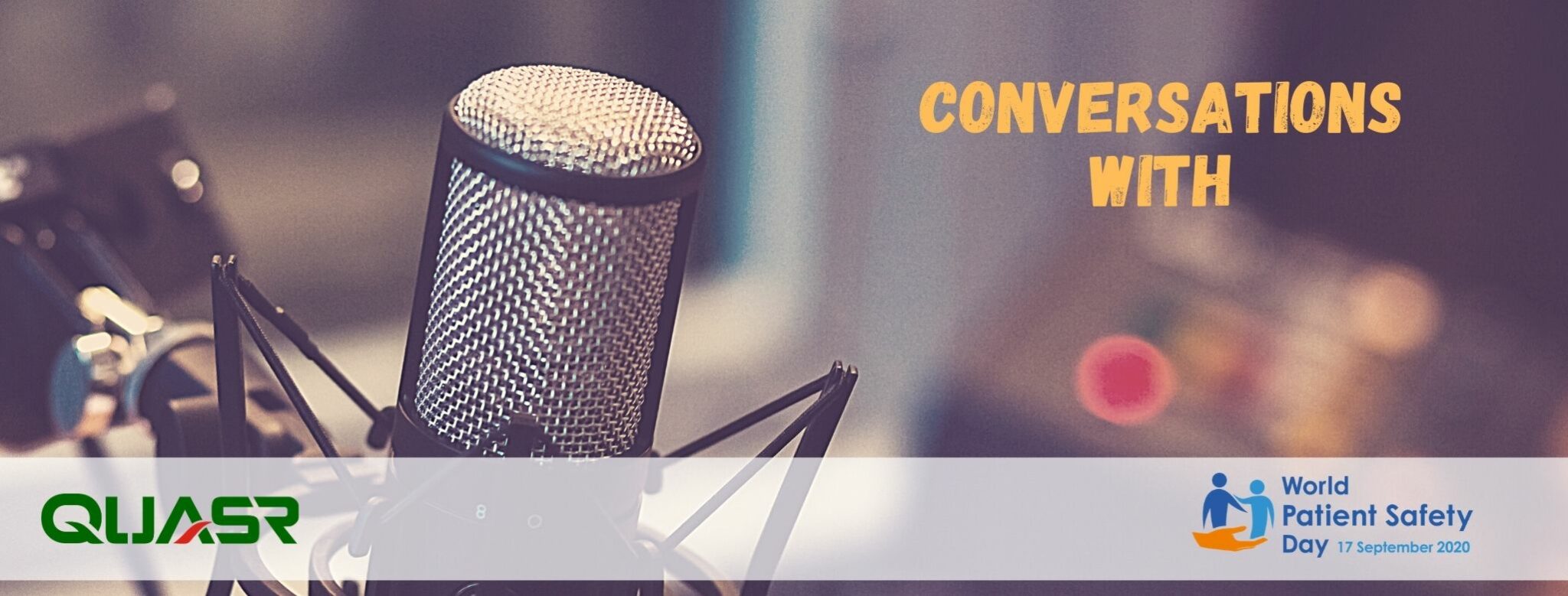In conjunction with World Patient Safety Day (WPSD) 2020, QUASR is organising a series of interviews with healthcare leaders to share their thoughts and to join the call for action to protect and support health workers.
Dato’ Dr Mohamed Ibrahim A. Wahid is the Medical Director and a Consultant Clinical Oncologist at Beacon Hospital, Petaling Jaya, Malaysia.
Dr Mohamed Ibrahim received his Bachelor of Medicine, Bachelor of Surgery (MBBCh) degree from the University of Wales, College of Medicine and his postgraduate specialist degree from the Royal College of Radiologists in London, United Kingdom (UK). After being trained in the UK, he returned to Malaysia and set up the Cancer Unit at the University of Malaya Medical Centre (UMMC) where he was appointed as the Head of Clinical Oncology before joining Beacon Hospital.
His fields of interest include lung, breast, head and neck, urological and gastrointestinal tumour. Apart from his role as a stereotactic radiotherapy & SBRT specialist, Dr Mohamed Ibrahim pioneered the development of high technology radiotherapy treatment in Malaysia.
Dr Mohamed Ibrahim has contributed to over 50 journals and publications and is a speaker at local and international oncology conferences, public and media forums as well as health program in Malaysia and SEA.

In this interview, Dato Dr. Ibrahim speaks about the protection and safety of health workers as the utmost priority, investing in cutting-edge technology while making pricing affordable and how digital innovation is impacting healthcare. He also describes with pride that Beacon Hospital CSR programs are helping hundreds of underprivileged patients avail of quality cancer treatments.
We take this opportunity to thank Dato Dr Ibrahim for sharing his views and opinions with us.
Here is an excerpt from the video interview with Dato Dr Mohamed Ibrahim
On World Patient Safety Day theme “Health worker safety is a priority”
Dato Dr Ibrahim strongly agrees that the World Patient Safety Day (WPSD) theme on health worker safety is a timely message, as we are now facing a world health crisis. “We need to adequately protect our health workers because if we do so, we are not only protecting ourselves but also our patients. If health workers are not protected, patients will also be at risk. Protection and safety should be the utmost priority”.
Beacon Hospital celebrated WPSD by creating greater awareness on health worker safety and protection, and tightening safety measures. Building a safety culture is an on-going process in Beacon. This crisis has made us more vigilant on personal hygiene and taking safety precautions, said Dato Dr Ibrahim.
“This pandemic has not only heightened awareness on staff safety but has also reinforced good habits we always take for granted. We hope this can continue beyond Covid-19 as our new culture”
The hospital sets up ventilated tents as screening areas for staff, patients and visitors at the parking area outside the hospital building. All patients undergoing any forms of procedures are required to take Covid-19 test. “Safety is not compromised, we check everybody”.
On private hospitals’ roles in Malaysia
In Malaysia, all Covid-19 cases are referred to government hospitals. Some private hospitals are asked to standby their ICUs and ventilators, and to support government facilities when they are overwhelmed. Fortunately, Ministry of Health (MOH) Malaysia has the situation under control so far and private hospitals have not been called upon to provide ICUs and ventilators. Malaysia did very well in containing the virus. There was an initial panic that Malaysia might run out of ventilators. In the end there was no shortage. The role of private hospitals is mainly to provide Covid-19 screening and refer any positive cases to MOH.
“I must congratulate MOH, they are so efficient. I think they are more efficient than many western countries. That’s why our Director General Tan Sri Dr Noor Hisham is well respected”
On how Covid-19 impacts cancer patients
Before this pandemic, there was MERS, SARS and other infections, but it never came to the point where we had to be locked down. “We have to admit a lot of us in Malaysia were unprepared that Covid-19 could hit us so hard”, said Dato Dr Ibrahim. “Fortunately, many hospitals acted swiftly and were able to manage the situation. I’m glad to say that we did quite well”. A lot of credits go to MOH.
One of the key challenges Beacon Hospital faced was the Movement Control Order (MCO) which made it difficult for some cancer patients to visit the hospital for treatment. “Our patients’ concerns are not so much the fear of contracting Covid-19, but more on how to get to the hospital for treatment with so many roadblocks”. They also don’t want the hassles of being stopped and questioned by police. “I had a lot of patients who needed hospitalisation and chemo treatment but were turned back”, said Dato Dr Ibrahim. The challenge is to find a balance between patient’s healthcare needs and restricting the public’s movement to contain the virus. The situation has improved since then.
Investing in cutting-edge technology and equipment
As a leading specialist cancer hospital in Malaysia, Beacon Hospital has always invested in cutting-edge technology on cancer treatment. Last year, Beacon invested in Halcyon, the state-of-the-art intelligent radiotherapy machine and became the first in Southeast Asia to introduce Varian Halcyon 2.0 machine to its cancer patients.
Beacon Hospital also installed the TrueBeam radiotherapy system last year, a new generation of a linear accelerator that can deliver much faster and accurate radiation dose compared to conventional radiotherapy system. “But we are also very sensitive towards pricing”, added Dato Dr Ibrahim. Beacon Hospital wants to provide affordable healthcare, particularly on cancer treatment.
“Beacon Hospital has always invested in cutting-edge technology but also making treatments affordable”.
Digitisation and IT innovation
Beacon Hospital has also been investing in digital innovation for better outcomes, patient safety and operational efficiency. For instance, the hospital has incorporated IT solutions into treatment machines. Patients can verify their identify before the start of a treatment to reduce errors. Doctors can monitor remotely treatment in progress to ensure that it is being given properly.
Dato Dr Ibrahim highlighted two areas where digital technology has impacted healthcare sector. The first is care delivery via telehealth. While he sees the opportunities for growth in telehealth, particularly for follow up visit and general visit, he believes that virtual consultation has its limitations. A leading oncologist in Malaysia, Dato Dr Ibrahim is of the opinion that patient-doctor contact or in-person touch will be more effective for certain types of consultations.
The second area where digital innovation is impacting healthcare is in continuing medical education (CME) through medical events and conferences.
“Virtual medical conferences and continuing education may become a new norm”
Due to the pandemic, medical meetings, events and exhibitions are going virtual. Dato Dr Ibrahim said he attends 3-4 major international conferences a year. One of them is ESMO Congress in Europe (ESMO is the society of reference for oncology education and information). Like many other events, ESMO Congress too has gone virtual this year.
Beacon’s CSR Programmes
According to Dato Dr Ibrahim, Beacon Hospital is the first and only hospital in Malaysia offering Corporate Social Responsibility (CSR) programmes that provide financial assistance to patients who cannot afford cancer treatments. The hospital sets aside certain budget for the CSR fund. The fund aims to help underprivileged patients to receive cancer treatment.
“Over the last 5-7 years, we have spent around RM30m, benefitting hundreds of patients under our CSR programmes”
There are two types of treatment schemes – radiotherapy and chemotherapy. Patients who apply will be assessed for affordability and insurance coverage, and in some cases the treatment is fully funded by the CSR Fund. It is in essence charity work with a big heart.



